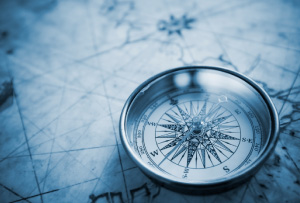 It’s not often that I’ll quote Star Trek, but the future really is an undiscovered country.
It’s not often that I’ll quote Star Trek, but the future really is an undiscovered country.
And that’s something to bear in mind, when you’re thinking about planning your career.
The biggest stress I see in my work? People trying to find their perfect place in that undiscovered country.
They’re focused on finding career nirvana in some far-off land, peering 5, 10… 20 years off into the future.
No wonder that’s stressful. Honestly, who knows who they’ll be in 10 years, let alone what the world around them will have become?
If you think you need a final destination before you set out on your career journey, I want to shift your sights.
Trying to choose the exact job you want to be in, years in advance, is akin to asking someone who’s new to travel, to choose one foreign country to emigrate to – and then to pick not just a city, but a specific suburb. Before they’ve even stepped foot outside of home, some people want to know what house they’ll end up living in.
Does that sound like a realistic career goal?
It sounds scary to me… which is why the idea of a career path – a safe, predictable route that will take you to a defined destination – is so enormously appealing. The only problem? Career paths don’t actually exist; there really is no one established route that will take you from here to there (wherever your there is).
Which is probably a good thing. Setting off with a map of exactly where you want to end up, career-wise, can be dangerous. While you’re busy following the map and covering the miles, the landscape can slowly change around you. Economies shift, technologies change, occupational fields grow and wither. Fail to look up and you can walk right off a metaphorical cliff.
So what’s the best way to plan your career?
I don’t suggest just wandering off, in the hope you’ll stumble upon something good. There are certainly worse things to do – these are my top 6 worst ways to choose a career – but it’s not the most efficient plan of action.
You need to re-think career planning.
Firstly, you need a broad direction to move towards, to get you started. You already have a compass – inbuilt preferences for how you like to spend your time, what skills you like to use and who you like to be with. Getting to know your personality, values, interests and strengths is hugely important in making good career choices, and this is where the help of a professional career advisor or coach can be invaluable.
Next, you need to learn to plan – and by that I mean, regularly checking in with where you are, where you want to be and what’s going on around you.
There’s a world of difference between drawing up a plan which you then spend years following, and actively planning your career. The first’s a one-off effort… and as things inevitably change, you’re likely to end up with a map that doesn’t match the terrain.
But actively planning? That’s a living strategy, constantly being amended and upgraded, depending on what’s going on – internally and externally.
In 5 years time, you’ll have developed in new directions and so will the rest of the world. Accept it, monitor it… plan for it.
Careers are always a work in progress – a journey, not a destination.
There’s no right path, but endless ways to create a career that’s right for you.
Want professional help, to navigate your own career journey?



